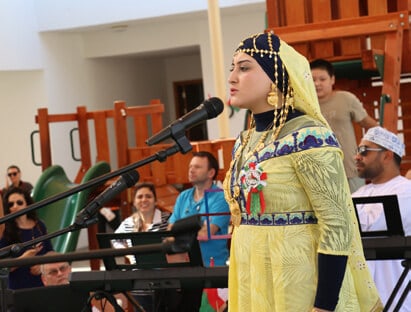I am a Business Manager, a title that conjures up the stereotype of the bespectacled Ebenezer Scrooge, hunched over his abacus, counting the shekels, and sardonically berating anyone who dares to suggest an expense that lies outside the approved budget. Sometimes this is true, but more often than not nowadays the miserly behaviour of old Mr. Scrooge has become a relic of the Dickensian era. The new and improved version of the Business Manager has a thorough understanding of all the school systems such as HR, IT, Operations, Marketing, Finance and Admissions. We actively engage with all the different department heads and in smaller schools we perform many of these tasks ourselves. We do a bit of everything except teach, and some of us have done that as well.
The other stereotypical comment I hear a lot is that ‘anyone can do admissions’. Well I can honestly tell you that this perspective is  a load of hogwash. It is a generalisation held by people who have never had to do the job, or worse, have forgotten how hard it was.
a load of hogwash. It is a generalisation held by people who have never had to do the job, or worse, have forgotten how hard it was.
What I have learned during my thirtysomething years as a senior manager is to keep an open mind and listen to people. I am not just referring to the CEO or the Board of Directors, who are obviously very important and need your undivided attention, but you need to listen to your colleagues, and in an International School setting, the Admissions Officer is key.
The Admissions Officer is the face of the school, a responsibility that carries a very heavy weight. To do so effectively the Admissions Officer needs to know the intricate workings of the school. Cafeteria menus, uniforms, bus timetables and after school activities are items that frequently come up for discussion during the enrolment process. A level of understanding of the curriculum is important too when it comes to presentations and school tours. Then there is the wider school community, where influential groups such as the PTA (Parent Teacher Association) need to be taken into consideration when it comes to supporting a new family.
The Admissions Officer has to have faith in the Head of School, the teaching staff and the academic quality of the education provided. Any member of the Admissions team that is not prepared to send their own children to the school speaks volumes to a prospective parent. Many schools offer free or reduced tuition fees for their Academic staff. It is my considered opinion that Admissions staff should receive the same cost benefits, otherwise it becomes very difficult to explain to prospective parents why their children are not at the school.
 An Admissions Officer not only needs to be empathetic towards the concerns of the enrolling family, but must balance that empathy with courage to suggest alternative solutions if the school does not have the right facilities for their child. They will deal with happiness, sadness, confusion, anger, trepidation and delight, often all within the first meeting, which quite often requires them to be able to read between the lines. Management of such varied and diverse personalities is a difficult task that the Admissions Officer will perform with courtesy and respect.
An Admissions Officer not only needs to be empathetic towards the concerns of the enrolling family, but must balance that empathy with courage to suggest alternative solutions if the school does not have the right facilities for their child. They will deal with happiness, sadness, confusion, anger, trepidation and delight, often all within the first meeting, which quite often requires them to be able to read between the lines. Management of such varied and diverse personalities is a difficult task that the Admissions Officer will perform with courtesy and respect.
 For new families, factors such as visa restrictions, political ideals and the economic climate lie outside the sphere of influence of many schools, but local rules and regulations will have a significant impact on the enrolment process, and a good Admissions Officer will be across many of the issues that face these families. For example: many international schools in Vietnam have a cap on the amount of Vietnamese Nationals that can be enrolled. Breaching this cap can lead to fines and problems with the Ministry of Education and Training. With such a high demand for an international education, it is not uncommon for families to exert whatever influence they might have in order to secure a place at the school. When this happens the propensity to begin enrolling students who are not ‘mission appropriate’ increases, which has a long-term negative impact upon the wider school community.
For new families, factors such as visa restrictions, political ideals and the economic climate lie outside the sphere of influence of many schools, but local rules and regulations will have a significant impact on the enrolment process, and a good Admissions Officer will be across many of the issues that face these families. For example: many international schools in Vietnam have a cap on the amount of Vietnamese Nationals that can be enrolled. Breaching this cap can lead to fines and problems with the Ministry of Education and Training. With such a high demand for an international education, it is not uncommon for families to exert whatever influence they might have in order to secure a place at the school. When this happens the propensity to begin enrolling students who are not ‘mission appropriate’ increases, which has a long-term negative impact upon the wider school community.
In Oman, the Ministry of Education has strict guidelines on the content of Arabic that must be taught in their schools. It is also mandatory for Omani students to be taught Arabic as a first language, regardless of whether it is spoken at home. My school is an International Baccalaureate PYP School catering for expatriate children and Omanis alike. We are in the process of incorporating the local Arabic curriculum with the IB, which is no easy task. The aim of our Admissions team is to maintain a ratio of 50% Omani students and 50% expatriate students. This makes timetabling easier to manage and assists in staff recruitment. Our team also try to ensure a healthy mix of boys and girls. It is a convoluted process, aided by OpenApply, but still requiring a significant amount of human interaction. This is where a good Admissions team can really shine.
 Last April I attended a training course in Doha, Qatar. The theme of the course was ‘Bringing Admissions to the Leadership Table’ and I was dismayed to learn that the Admissions Officer was still not considered to be part of the Senior Leadership Team within many schools. As a Business Manager my main responsibility is to ensure the financial stability of the school. There are many stakeholders involved in this process and I have always considered the Admissions team to be an integral part of the group. Whether you work in a non-profit or a proprietary school the pressure is on to fill places and cover costs. The Admissions team provide the Finance department with up-to-date student numbers and enrolment trends. I rely on their knowledge and expertise every year when setting the budget and without this support many of the key financial decisions that I make would become much more difficult.
Last April I attended a training course in Doha, Qatar. The theme of the course was ‘Bringing Admissions to the Leadership Table’ and I was dismayed to learn that the Admissions Officer was still not considered to be part of the Senior Leadership Team within many schools. As a Business Manager my main responsibility is to ensure the financial stability of the school. There are many stakeholders involved in this process and I have always considered the Admissions team to be an integral part of the group. Whether you work in a non-profit or a proprietary school the pressure is on to fill places and cover costs. The Admissions team provide the Finance department with up-to-date student numbers and enrolment trends. I rely on their knowledge and expertise every year when setting the budget and without this support many of the key financial decisions that I make would become much more difficult.
In my experience Admissions is a very personal task requiring compassion, courage, empathy, strength of character and a high degree of intelligence. The admissions process cannot be templated or streamlined as it requires the right person, with an appropriate skill set, in order to be done correctly. I encourage you dear reader not to ‘Bah, humbug’ Admissions. Bring them to the leadership table of your school.
 About OurPlanet International School, Muscat
About OurPlanet International School, Muscat
OurPlanet International School opened in September 2013 with Kindergarten classes 1, 2, 3 and primary grade 1 in Madinat As Sultan Qaboos as part of a global school network called the Nobel Education Network. We are a recognised and accredited International Baccalaureate (IB) World School offering the Primary Years Programme (PYP). OurPlanet is also the first school in Oman to combine the International Baccalaureate PYP with the Ministry of Education Arabic A and Arabic B curriculum.
The World Topic of Sustainability is embedded in our Project-Based Learning through the units of enquiry of the Primary Years Programme (PYP). The 3 R’s are central to what we do: Reuse, Reduce and Recycle. From EY1 onwards, we believe that it is through understanding our planet and protecting its resources that we can create the eco warriors that will be the responsible adults of the next generation.
















 All Services
All Services


